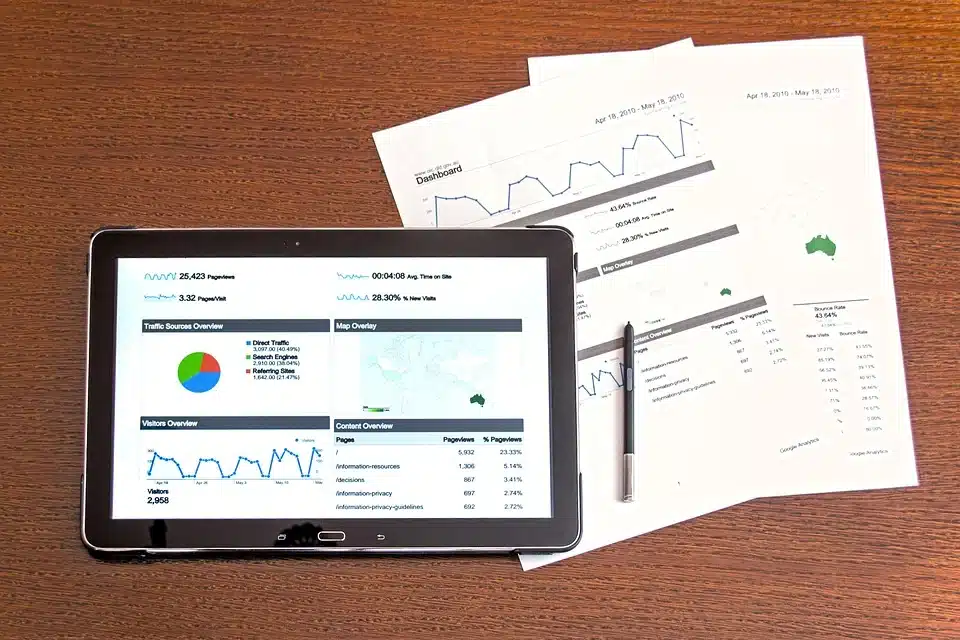Listen to this blog
Business analysts are the glue that holds an organization together. They bridge the gap between different departments, understand complex business problems, and come up with effective solutions. In the multifaceted field of business analysis, having a clear understanding of the required skills can make all the difference. It not only helps you streamline your tasks and responsibilities, but also sets the stage for career growth and advancement. Whether you’re aspiring to step into this role or are an experienced professional seeking to elevate your performance, knowing the right skills to develop is essential.
Here are some of the key skills that business analysts need:
- Strong analytical and problem-solving skills
- Excellent communication and interpersonal skills
- The ability to think strategically and creatively
- The ability to work independently and as part of a team
- The ability to manage multiple projects simultaneously
- The ability to stay up-to-date on industry trends and best practices
If you have these skills, you’ll be well on your way to a successful career in business analysis.
Top skills for a business analyst
Business Analysts need a mix of both soft and technical skills to perform their roles effectively. Although the importance of specific technical skills can vary based on the industry, company, or specific role, some of the key skills generally required for a Business Analyst include:
Understanding business objectives
The scope of the business is usually defined first by business analysts. However, this may lead to complications. Before defining the project’s scope, it is more beneficial to ascertain the primary business objectives as mentioned below –
- Determining the expectations of the key stakeholders
- Combining opposing expectations
- Ensuring that the company’s goals are specific and reachable
- Making sure that the business goals serve as the foundation for determining a scope
Cost-benefit analysis
It is a method that business analysts employ to carry out an analysis of the project’s benefits and expenses. The cost-benefit analysis includes adding up all expenses associated with a project or decision and deducting that sum from all anticipated benefits.
Documentation
A business analyst must produce multiple documentation throughout the project’s life cycle. Even though a business analyst occasionally needs to create various business documents, the templates can differ from one organization to another. The domain, business analysis method, project complexity, project life cycle model, etc., are other factors that influence the document list.
Depending on the situation, the business analyst must coordinate with the relevant project managers, stakeholders, and implementation team. There are review sessions at every level, which make it possible to assess the process more practically and update the documentation as needed.
Here is a list of documents that are frequently requested across industries-
- Business plan
- Business analysis plan
- Business prerequisite documents
- Plan for managing stakeholder
- System requirement and specification plan
- Process/functional document
Programming languages
Business analysts should be skilled programmers and be able to analyze data more efficiently and swiftly. They should be proficient with prog languages such as R and Python. By writing effective codes, complex issues can be resolved. Several tools and packages for data wrangling, data manipulation, data visualization, and analytics are available in R and Python.
Furthermore, proficiency with statistical programs like SAS and SPSS is advised. Massive data can be finely analyzed and visualized with these computer languages. Additionally, various programming languages can be used to build business models for forecasting company outcomes.
Data visualization capabilities
Transforming raw data into actionable digital representations necessitates the use of data visualization. Business analysts can use data visualization abilities to help clients understand data and make strategic decisions that match their needs. Scatter plots, time series sequences, polar area diagrams, timelines, line graphs, and other sorts of data visualization techniques are utilized by business analysts. A business analyst must be able to use all of these tools to create beautiful and thorough representations.
Expertise in Microsoft Excel
Expertise in Microsoft Excel is required for business analysts. Every business analyst should be proficient with the use of spreadsheets. Business analysts undertake several computations, data analysis, and budget analysis using Excel, one of the most established and powerful analytics and reporting applications. They produce pivot tables to summarize the data and create dynamic reports.
Excel is used to organize an editorial calendar, list expenses for items, produce charts to indicate how near the product is to budget across each category, and construct revenue growth models for new products.
Based on monthly purchase volume by product, business analysts utilize Excel to determine consumer discounts. To identify areas where it is necessary to develop deeper customer interactions, they even summarize client revenue by product.
Database management & SQL
Knowledge of databases and SQL is the next skill every business analyst needs to possess. They should be well-versed in relational databases like Microsoft SQL Server, MySQL, Oracle DB, and NoSQL databases to store and process this large amount of data.
They can access, retrieve, manipulate, and analyze data using this. They must also create, delete, select, update, insert, and other data definition and data manipulation commands.
Technical skills for business analysts
Business analysts must possess some technical skills to effectively analyze and solve business problems. A business analyst salary depends upon the kinds of technical skills you possess. Here are a few to mention:
Data Analysis
Business Analysts often need to interpret a significant amount of data to make strategic decisions. Skills in data analysis, which might include knowledge of Excel or more advanced tools like SQL, Python, or R, are typically important.
Business Intelligence
Understanding and utilizing Business Intelligence tools such as Tableau or Power BI can be beneficial in turning raw data into actionable business information.
Process Modeling & analysis
Understanding of process modeling methodologies like BPMN (Business Process Model and Notation), as well as proficiency in using process analysis tools such as ARIS or Visio, are vital for business analysts. These capabilities enable them to diagram and scrutinize business procedures, spot areas of inefficiency, and suggest viable enhancements.
Systems analysis
System analysis is a crucial skill for Business Analysts because it allows them to understand and evaluate the technical systems that are in use within an organization.
ERP & CRM systems
Having knowledge of Enterprise Resource Planning (ERP) solutions such as SAP or Oracle, and Customer Relationship Management (CRM) platforms like Salesforce, is beneficial for business analysts. This comprehension assists them in collecting requirements, assessing needs for system integration, and aiding in the execution of implementation projects.
Soft skills for business analysts
A business analyst must execute several tasks. Hence they must have a solid skill set with both technical and non-technical skills. Below are some soft or non-technical skills required for a business analyst.
Excellent communication skills
Being understood is just as important as understanding. Clients and stakeholders should easily understand the needs of the business. A business analyst needs interpersonal and communication skills at various stages in a project, such as when it is being launched, gathering requirements, coordinating with the stakeholders, validating the final solution, and so forth.
They communicate with stakeholders verbally and in writing to share various business ideas, information, and viewpoints. Additionally, a business analyst with strong communication and interpersonal skills will be more confident while leading meetings.
Listening skills
A business analyst’s role is to examine things, circumstances, people, and possibilities and use everything to advance the organization. Therefore, they must constantly exercise caution and observation to ensure no opportunity is lost. A business analyst’s excellent listening ability is a valuable quality.
They are not merely passive listeners. They pay attention to comprehend and learn important facts and details from what they hear or are told.
Additionally, they comprehend the context, tone, and body language to convey the message. So, start honing your listening abilities if you intend to pursue a career as a Business analyst.
Decision-making skills
A direct and indirect effect on the company’s operations results from the judgments made by a business analyst. As a result, they should consider all the factors before making their selection. A business analyst analyzes the problems and identifies potential business strategies before making a choice. They then put each alternative strategy to the test and decide based on their observations.
Finally, they implement the solution that has been decided. They also make the final determination as to whether or not a specific technological design complies with the discussed business requirements.
Time management
Another skill required for the business analyst is the ability to manage their time is an essential personality trait. It helps improve efficiency and allows you to deliver greater customer satisfaction. For an individual, time value is highly significant. Making a daily schedule can help you avoid wasting time.
How to become a business analyst?
To become a successful business analyst, you will require to have a master’s degree. If you want to gain technical knowledge and business skills, then you can choose to pursue an online MBA in business analytics. If you want to gain in-depth knowledge in the subject, then an online MSc in business analytics can be the right choice. If you are already in the domain and want to upskill or refresh your knowledge, then you can go for an online certificate program in business analytics. A business analyst course allows you to gain the necessary knowledge and skills to excel in the domain.
Read more: Become a domain leader after an MBA in Business Analytics
Conclusion
To gain extensive knowledge in business analytics and to become a future ready professional, look no further than Online Manipal. Get access to in-demand business analytics programs from Manipal Academy of Higher Education and explore job opportunities in top companies.
Become future-ready with our online M.Sc. in Business Analytics program








